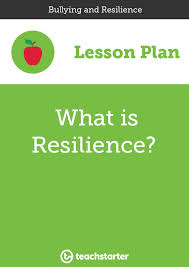I have spent the last month thinking about what I could do to make my classes better or more engaging. But let’s face it, it’s elementary PE. The kids are always so excited and happy when they walk inside the gym. I often greet the kids in the morning when they arrive at school off the bus. Before they can even get out a hello they are always SO excited to tell me they have phys-ed or they hope they do!!!
Which led me to start thinking about why we have setbacks or problems once inside…….
Through my work as a PE teacher at the elementary level, I have observed that more children seem to demonstrate a lack of resilience. My hope is that with my action plan I can help more children develop this important life skill.
This lack of resilience can be most evident in children’s response to failure or when attempting something new or challenging.
Resilience is necessary for children to have a positive approach to new tasks, overcome setbacks and maintain their effort. Resilience is necessary during difficulty and in protecting their own emotional well being.
RESEARCH KEY POINTS:
- Resilience may be fostered by controlled exposure to manageable challenges or stresses, rather than through their avoidance.
- Benefits may depend on mental features; such as planning, self-reflection and personal agency. Success in areas outside the family (such as schools) may foster these features.
- Individual differences in response to challenges are influenced by genetic factors.
- Resilience is not a fixed trait and can be developed.


Hi @fsawyer,
Nice work on publishing your first C21 blog! Building resiliency is such an important life skill, and it certainly needs more attention. This will undoubtedly make for a fascinating Action Plan with lots of opportunities to learn from your users. I look forward to seeing where your Action Plan takes you in the coming months, and to hearing more about your views on resiliency tomorrow during our F2F.
Cheers,
Nicole
I think this kind of inquiry is one that will serve you for many years to come in your teaching practice.
I’m curious, since it’s been a while since you wrote this post, if the 2nd F2F pushed you to articulate a HMW question about this big, broad topic on resiliency?